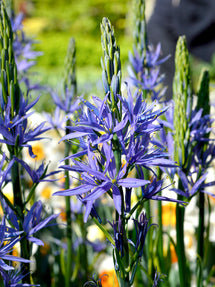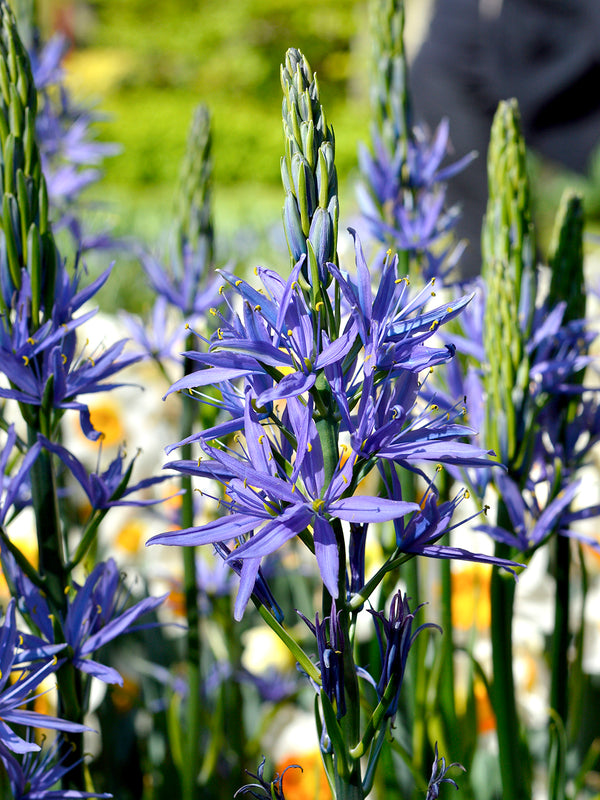Camassia (Camas Lily)
"CAMASSIA - THE POWER OF AMERICAN NATIVE"
Showing 1 - 1 in 1 items
CAMASSIA BULBS FROM HOLLAND
Easy to care for camassia bulbs
Camassia bulbs are highly valued due to their versatility, excellent naturalizing properties and all-round great performance. Surprisingly, it’s only recently that Camassia flowers started to appear in the mainstream gardening world, but it wasn’t long before they started to gain the popularity they deserve. One of the best qualities of Camassia bulbs is their ability to naturalize so well and easily. Preferring well-drained soil high in humus, once planted Camassia bulbs require very little attention– you can more or less step back and leave them alone and they will happily come back every year, much to the delight of bees and other garden pollinators.
Where to plant Camassia bulbs
The beautiful Spring-blooming Camassia flowers are just as at home in lightly shaded forest areas, on rocky terrain, in both formal and informal garden and landscape settings, in beds, borders, and even public parks. They also do surprisingly well in moist soil so they are a great choice for planting alongside ponds, streams and burns. Camassia flowers can be propagated in Summer when the plant is dormant - July is ideal. All you need to do is carefully remove the offsets that form round the main bulbs and then plant them in a suitable spot.
Buy top-quality Camassia bulbs from Holland
For the best-quality Camassia bulbs for sale, choose the carefully selected top-sized bulbs available at DutchGrown. We only supply top-sized bulbs for best performance. One thing to note is that Camassia bulbs do not perform as well when planted in pots and containers as they do not like to be restricted. Otherwise, these highly versatile and very attractive plants will grow happily and thrive in most settings.

